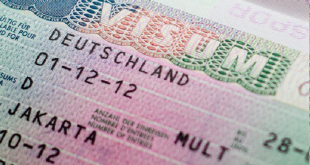
Germany hosts over 400,000 international students, making it among the top 5 countries globally by the number of foreign students. There are also plenty of reasons the country has a constantly increasing number of international students. One of them is the free education in public universities, but there are so much more.
If you are an international student who has never visited Germany before, you might find some trouble adjusting to life there. In this article, we have gathered a list of the top 10 tips for international students in Germany.
And if you need more practical advices on the life in Germany as an international student, read also our guide on the cost of living and studying in Germany.
Table of Contents
Take the extra classes
At most German universities, some lectures are very long, and may last up to four hours with a short break before the next class. So, make sure you go to school hydrated and well-fed. Also, to make sure you don’t fail any courses, attend additional exercises classes that teaching assistants usually hold.
This will help you practice what the lecturers have presented, which in most case consists of using PowerPoint slides with very little to no student-teacher interaction. Furthermore, these extra-class sessions will help you better understand the lessons and consequently earn better grades.
Learn the German language
Next on our top 10 tips for international students in Germany, is to learn the German language. Unless you’re part of a program where courses are taught in English, you’ll need to learn German. In most cases, you’ll be taught in German and will be expected to know the language. Additionally, you may be able to communicate with other members of the community in English. However, be prepared for those won’t want to speak any other language but their own.
Getting around
Most cities in Germany have good public transportation, which saves students a lot of time. When enrolling in a German university, you’ll receive a ticket that allows you to go anywhere you want within the state for an entire semester. Use that to your own advantage, and take the time to discover this country that also happens to be an economical, industrial and cultural epicenter in Europe.
Things you may need
Depending on where you live, you may be surprised at the number of shops that only accept cash. Therefore, it’s best to keep enough cash with you when exploring the city. Additionally, make sure to shop on weekdays or Saturdays as most shops including grocery shops are normally closed on Sundays. In conclusion, don’t leave your shopping on Sundays and always be prepared to pay cash.
Travel as much as you can
Make use of bus and train lines as well as airlines. You can travel for cheap with low-cost airlines like Ryanair and EasyJet. On the other hand, trains can be a bit more expensive, especially if you’re traveling far. Furthermore, you travel all around Europe by bus or train and go on an adventure to a different country that is hundreds of kilometers away (depending on where you live in Germany).
Speak the language
It may be hard to speak the German language at first, but it’s better than not speaking the language at all. In fact, you can warm up your German language skills by engaging in simple day-to-day conversations. For example, you can order coffee at the coffee shop or talk to shop workers.
Change your phone settings to German
This tip will help you a lot. You will be able to read the daily news in German and by doing so, you’ll learn new words. Furthermore, this will help you a lot if you have decided to learn the German language.
Be adventurous
Most students may find it hard to adjust at first. However, we encourage you to seize any opportunity to try something new. Moreover, you should talk to people in class, be social and use your free time to explore the country.
Shop locally
There are many supermarkets in Germany that sell groceries for a cheaper price such as Lidl, Aldi, and Netto. You may prefer these to more expensive shops. Additionally, you can speak with the locals and ask about farmers markets where you can find fresh products for a cheaper price. We advise that you keep an eye out for store sales and offers, and that you buy your necessities in bulk.
You should also note that as a student in Germany, you’ll have student discounts at cafés, restaurants, cinemas, libraries, and museums as long as you have your student ID.
Manage your social activities wisely
Our final advice for international students in Germany is to spend wisely on social outings. Your quality of life in Germany depends on the social activities that you indulge in. However, instead of spending a lot of money on group outings, you can invite friends over for a home-cooked meal. Not only will you save money, but you’ll make new local and international friends as well. Moreover, plan your social activities according to your budget.
Find also more information on Germany’s Customs and traditions.




 Aljawaz Your guide to study abroad
Aljawaz Your guide to study abroad























Getting a German Study visa is almost every student’s dream of a lifetime.
I totally admire your content. it’s precise and up-to-date.
Appreciate your endeavor!
Thank you Ali.